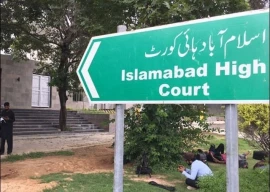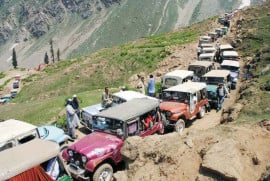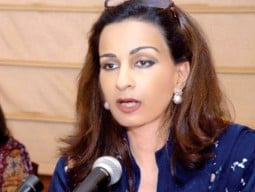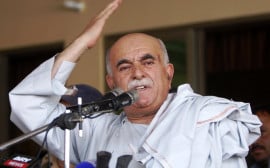
From the nature and quality of discussion in the country, it appears that there is a consensus against the democratic process and there is subliminal support for any unconstitutional replacement that may be in the offing. No one cares for the Constitution because the reflex of ignoring it in favour of military intervention is highly developed. Public statements after the memogate affair are worshipful of the Pakistan Army and accusations of ‘treason’ are being directed at an elected government. (It would be a first in the history of democracy if treason is presented as a crime aimed against the army.) No one is thinking of the constitutional way of changing the government — that of challenging it to show majority in parliament or waiting till the next elections in 2013 and defeating it at the polls. President Zardari has to be removed because the next elections may not be ‘fair’ under him. No one thinks of what the Constitution says.
Governance in Pakistan was never exemplary and now that the situation of law and order has become this bad — because of al Qaeda and sundry other state-supported non-state actors — it is possible that it would be even more abysmal under any post-PPP government. Politicians who would remove President Zardari seem to have a worldview which sees nothing wrong with reconciling with non-state actors who commit acts of terrorism and militancy. There are cases being heard by the Supreme Court involving the PPP government and President Zardari, but no one makes any pretence of remaining impartial till the honourable court has delivered its verdict. It appears as if the accused is being prejudged and as if a groundswell of ‘national consensus’ is perhaps guiding the honourable court.
Pretend to be a non-Pakistani for a moment and one will see that that there is a collective tendency for self-destruction in all this. Intense politicians looking for populist acclaim repeat that President Zardari is partisan and that, somehow, it is not right that he is president and leader of the party at the same time. The truth is, the Constitution is silent on the matter and a future legislature must amend it to disallow a party leader becoming president. Innovative legalist thinking expects that where the Constitution is silent, the Supreme Court will somehow stretch its activist agenda and remove this constitutional grey area. Instead of doing all this, why not wait till the next elections and force the PPP government to meet its comeuppance? If corruption has become a national crisis and there is no way out left but to kick out an elected government prematurely, again the Constitution will need to be amended if the PPP’s majority in the National Assembly can’t be broken.
It doesn’t look nice that the people of Pakistan are currently giving the impression of ganging up against their own elected government and that even the Supreme Court is being made to look like the bellwether of the march in all this. The media and the politicians are their visceral worst, if for nothing else, than for the crime of consolidating the traditional supremacy of the army. The PPP government’s mode of survival, given these circumstances, is to blindly follow the lead of the military. Surely, it needs to assert itself and, for this, its biggest strength would be its electorate and no other institution.
Published in The Express Tribune, December 11th, 2011.
COMMENTS (7)
Comments are moderated and generally will be posted if they are on-topic and not abusive.
For more information, please see our Comments FAQ















1710998259-0/pti-(1)1710998259-0-270x192.webp)




















Spot on analysis.Well said.Wish sanity prevail in this land of pure.
@malik: I totally agree with you but unfortunately we are in no mood to wake up. Infact we are desperately trying to go into a deeper sleep mode from which we may not be able to wake up. For the sake of our country I wish I am wrong.
A well-written and excellent piece! Congratulations to the editors. This sums up what is wrong with Pakistan, i.e., those who are easily swayed by populist rhetoric, the gossipmongers and conspiracy theorists disguised as journallists and nationalists, and the holier-than-thou and flamboyant politicians who can't wait for their turn to come to power and resort to all sorts of verbal shenanigans to dupe the public and mask their true motives. The people are wont to display their seeming affection for democracy and its accoutrements but, when push comes to shove, are easily entranced by the notion that it is ultimately the military that could pull Pakistan from the brink. This article is genuinely a wake-up call.
The editorial well written and raises some very interesting questions. There is no question that the constitutional provision should be the guidelines for any political discourse. However, and it is with all due respect to President Zardari and to the office of presidency. I will mention just a few things as listed under: 1. President Zardari came out of blue at the time of assassination of his wife and tried to dominate both the party and state apparatus. This was not the right approach. Several party stalwarts were left out in the darkness and in turn demoralized. 2. The President has taken some wrong turns, i.e. direct involvement in state affairs while the constitution restricts president to be ceremonial head of state. 3. The president is somewhat responsible in antagonizing the state machinery particularly of the Ministry of Foreign Affairs and more so the top brass of the defense establishment. Instead of taking an inclusive route, the president tried to take the vice-regal route. That antagonized senior civil and military officials and perhaps the Prime Minister as well. 4. The President takes a very casual attitude towards his responsibilities towards the people but like to dominate the political process. Example left for France in the midst of floods in Punjab, and Sindh giving an impression of not my problem. 5. The president has spent more time and effort in bringing his son to the political stature than actually building the party and strengthening its hierarchy. If President is Zardari is sincere (and I am not questioning his integrity or sincerity), he should play by the rules and strengthen the institutions and democratic process.
Yes Surely, it needs to assert itself and, for this, its biggest strength would be its electorate and no other institution I can not agree more to what u said.
Personality based politics by the way of own agenda through individually managed and self loyal persons as an alternative of party manifesto politics, results non-systemized and un-organized party structure, un-skilled and un-experienced leadership, non-political aptitude workers.
Whereas, establishment is well skilled and organized, experienced and systemized in bureaucratic and administrative duties at national, provincial and local level.
Therefore, manifesto less politics, fragile party structure and pseudo-political coworkers, force the political leaders either to subordinate or confront the establishment for politics or governance instead of reciprocal, honorable, reliable and fruitful institutional working relationship to perform their charter of duties according to the constitution, laws and rules of business.
Brilliantly written article, which grasps the real issue. Tolerance and patience two virtues which we as a nation lack. I personally think corrupt leaders and rulers are a manifestation of our nation's own degrading values and norms. We deserve such rulers after all we voted PPP in power so now we must suffer.